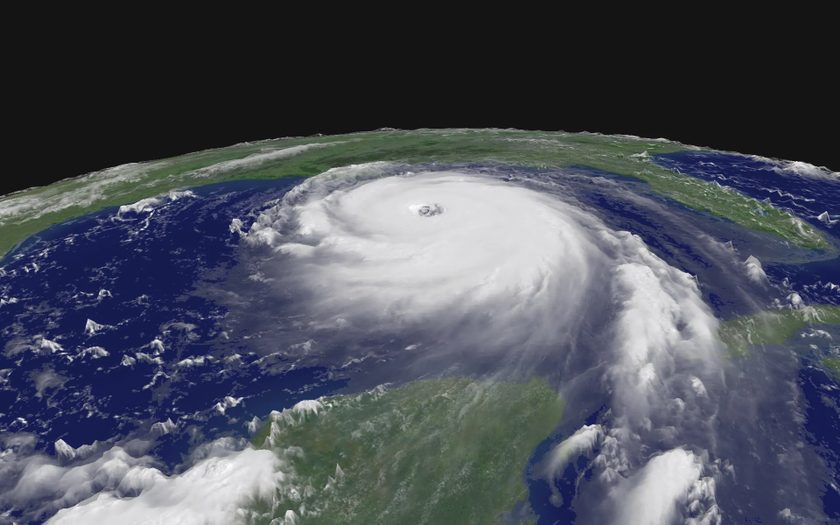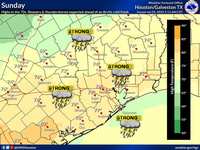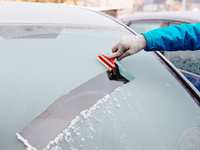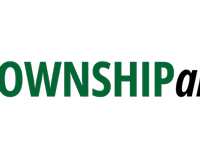- Sections :
- Crime & Public Safety
- Restaurants & Food
- Sports
- More
Hurricane season officially starts this weekend; are you ready?

THE WOODLANDS, TX – June 1 is the official start of hurricane season for our area – lasting through the last day of November. Earlier, the NOAA (National Oceanic & Atmosphere Administration) National Hurricane Center predicted an above-average season, with somewhere between 13 - 19 named storms forming in the Atlantic and Gulf.
Since 1953, Atlantic tropical storms had been named from lists originated by the National Hurricane Center, and were for the first 25 years named solely after women. The six lists of names covering the majority of the alphabet – Q, U, X, Y, and Z names are omitted – are used in rotation and re-cycled every six years. The only time that there is a change in the list is if a storm is so deadly or costly that the future use of its name for a different storm would be inappropriate for reasons of sensitivity. The most recent example for a name change in this year’s list is replacing Dorian with Dexter after the devastating Hurricane Dorian in 2019. Last year, Beryl, Helene, and Milton were permanently retired as names, and a Hurricane Katrina will never again form in the waters to strike us.
Here is the full list of 2025 Atlantic hurricane names: Andrea, Barry, Chantal, Dexter, Erin, Fernand, Gabrielle, Humberto, Imelda, Jerry, Karen, Lorenzo, Melissa, Nestor, Olga, Pablo, Rebekah, Sebastien, Tanya, Van, and Wendy.
The Woodlands Online Weather Center wholeheartedly encourages people to obtain flood insurance – if they haven’t already – at the first possibility. To purchase flood insurance, you can either go through the National Flood Insurance Program (NFIP) or a private flood insurance provider. The NFIP is a federally backed program administered by FEMA and is available to anyone in a participating community. Private insurance companies also offer flood insurance, often in partnership with the NFIP. There is typically a 30-day moratorium for a policy to kick into effect, and the last thing you want are rising waters inside your house with a useless policy in your filing cabinet because you’re counting down the days until activation.
Extended power outages over the past years have compelled many to purchase portable and permanent power generators to keep the fridges and portable AC units running should the grid go down in the dead of summer. Talk with an expert about your power needs and the correct wattage generator to meet them, and ensure you read all manuals and have the proper supplies, including funnels, oil, gasoline stabilizer, and extension cords.
This would be a good time to slightly alter your grocery shopping habits; for the season of storms, it’s advised to keep stocked up on pantry items in jars, boxes, and cans, and then to buy perishables and freezables only on an as-needed basis. This will minimize spoiling should your fridge lose power. Should your electricity go out, don’t open your refrigerator or freezer doors unless absolutely necessary. Items in a fridge can stay unspoiled for several hours and your frozen goods won’t thaw for a day or so this way.
Always have multiple ‘escape routes’ planned should we get in the path of a strong enough storm or flood. This isn’t the time to see how many miles you can go on a single tank of gas before refilling your tank; instead, try to keep your fuel level at a half a tank at minimum and top off before the skies turn grey. Those of you with electric cars should get on the road at the first hint of danger, or else you could find yourself stranded on ‘empty’ in a traffic jam still within city limits.
In your car, office, and home you should keep fully stocked emergency preparedness bags containing packaged, bottled water, first aid supplies, batteries, flashlights, and portable chargers.
Next week, we’ll talk about how to best protect your home from tree limbs in your own yard and your neighbor’s.





